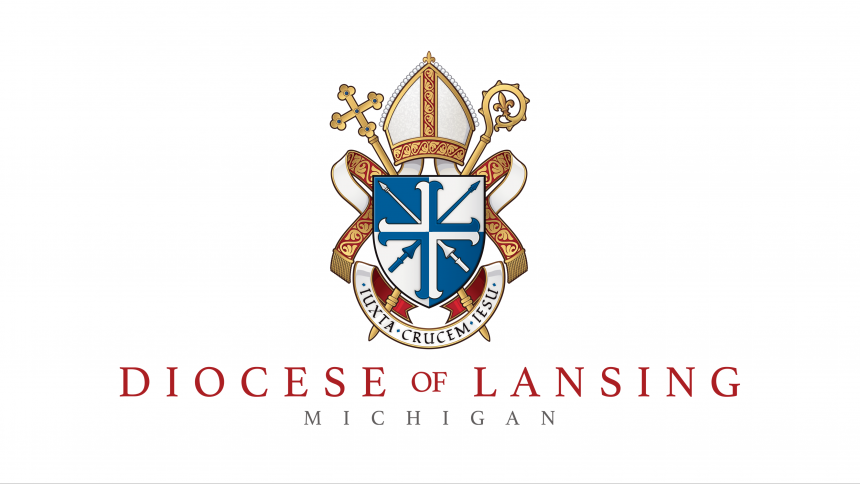
From: Jeremy Priest, Director of the Office of Worship, Diocese of Lansing.
To: Priests and Deacons of Diocese of Lansing
Re: Liturgical Celebrations and Public Health Concerns
Date: 12 March 2020
Reverend and Dear Fathers,
In light of the current health concerns regarding Coronavirus /COVID-19, it is prudent to remind ourselves of some basic common-sense precautions that can be taken in order to prevent the potential spreading of the virus during liturgical celebrations.
As has been our diocesan policy during times of public health concerns, the local pastor/administrator has the discretion to exercise the options already provided in the Roman Missal.
At this time, all public liturgies will continue. To both ensure good public health and to reassure the faithful at this time of concern, however, the Diocese of Lansing Office of Worship strongly encourages initiating the following measures beginning this weekend, the Third Sunday of Lent, March 15, 2020, until further notice.
1. Everyone should be strongly encouraged to remain at home when ill: The faithful are not obliged to attend Holy Mass when ill, and even out of charity they ought not to attend. The Catechism of the Catholic Church states that “the faithful are obliged to participate in the Eucharist on days of obligation, unless excused for a serious reason (for example, illness, the care of infants) or dispensed by their own pastor” (CCC 2181). In this instance, the faithful should be encouraged to view or listen to a broadcast of Holy Mass and to make a spiritual communion.
2. Encourage all ministers of Holy Communion to practice good hygiene: All ordinary and extraordinary ministers of Holy Communion should be attentive to practice good hygiene when serving at parish Masses and during service to the infirm in homes, hospitals and health care facilities in the diocese. Hand sanitizer may be used prior to the distribution of Holy Communion, which should be done discreetly so not to denote a ritual act. Hand-washing is the most effective way of preventing the spread of germs.
3. Omit or modify the Sign of Peace: The invitation to the sign of peace, although a regular part of our liturgical practice, is always an option according to the Roman Missal (GIRM no.154). Therefore, priest celebrants and deacons are strongly encouraged to exercise the option not to extend the invitation, “Let us offer each other the sign of peace”. The Lamb of God should begin immediately after the words, “The peace of the Lord be with you always,” and the response, “And with your spirit”. If this option is not exercised, the pastor should consult and instruct the faithful to exchange one common and appropriate gesture.
4. Communion under one species: Priest celebrants are strongly encouraged to exercise the option, also provided in the Roman Missal, to refrain from the distribution of the Precious Blood to the faithful and to distribute Holy Communion under one species, i.e. the Sacred Host. Pastors should make arrangement for those suffering from severe cases of celiac disease to receive the Precious Blood. To avoid catechetical confusion, pastors are also advised to instruct the faithful that “Christ, whole and entire, and the true Sacrament, is received even under only one species” (GIRM no. 282).
5. Communion on the tongue: Those who prefer to receive Holy Communion on the tongue are encouraged, for the time being, to receive Our Lord in the hand although not to do so is a perfectly licit choice on the part of the communicant and should be respected by the minister of Holy Communion.
6. No holding hands: In order to lessen opportunities for spreading the virus, it should be noted that there is no requirement for holding hands during the Lord’s Prayer and, so, this practice should cease until further notice.
7. Holy Water precautions: Holy water fonts should be regularly emptied, cleaned and then refreshed with blessed water or, alternatively, they can remain empty. However, there should still be holy water available within parishes for those clergy and lay faithful who wish to avail themselves of it for private use.
If you have any further questions or queries regarding the above, please do not hesitate to contact me in coming days.
Yours sincerely in Christ,
Jeremy J. Priest
Director of the Office of Worship, Diocese of Lansing.
